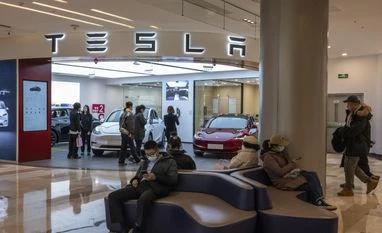Donald Trump threatens Tesla revenue stream that's never been bigger
The revenue in question comes from the regulatory credits Tesla generates by selling EVs, which comply with increasingly stringent pollution standards governments have set around the world
Bloomberg By Kara Carlson
Since it’s been making electric vehicles, Tesla Inc. has raked in almost $12 billion straight from the coffers of its competitors. If Donald Trump gets his way, that revenue stream won’t flow quite as quickly the next few years.
The revenue in question comes from the regulatory credits Tesla generates by selling EVs, which comply with increasingly stringent pollution standards governments have set around the world. Automakers that don’t sell as many plug-in cars can buy these credits to count toward their emissions rules compliance.
Tesla’s regulatory credit business has never been better, with the automaker having just disclosed that it generated a record $2.76 billion in revenue last year alone. This was up 54 per cent from 2023 and driven by demand for credits in North America, the company said Thursday, as other manufacturers scaled back their EV plans.
While that pullback would bode well for Tesla under current regulations, Trump is eager to rewrite the rules. The first order of business for his Transportation Secretary this week was to start resetting fuel-economy standards. The president also has criticised the Environmental Protection Agency’s limits on carbon dioxide emissions from vehicle tailpipes, and his administration may rescind a waiver allowing California to set its own stricter pollution curbs.
As the leading seller of EVs in the US by a long shot, Tesla generates far more regulatory credits than peers such as Rivian Automotive Inc. The maker of electric pickups and sport utility vehicles has said it expected to sell about $300 million worth of regulatory credits in 2024.
Analysts at JPMorgan Chase & Co. estimated earlier this month that roughly 40 per cent of Tesla’s profits could be at risk if Trump implements various policy changes to the detriment of EVs.
Adjustments to US rules wouldn’t completely wipe out Tesla’s regulatory credit business because the company also sells credits in other markets, including Europe. The company doesn’t give a regional breakdown of where it’s generating this revenue in quarterly statements or regulatory filings.
Tesla Chief Executive Officer Elon Musk, who was a top donor to Trump during last year’s election, downplayed the risk that the president’s plan pose to EV demand.
“At this point, I think that sustainable transport is inevitable,” Musk said on an earnings call Wednesday. “It can’t be stopped.”
)

